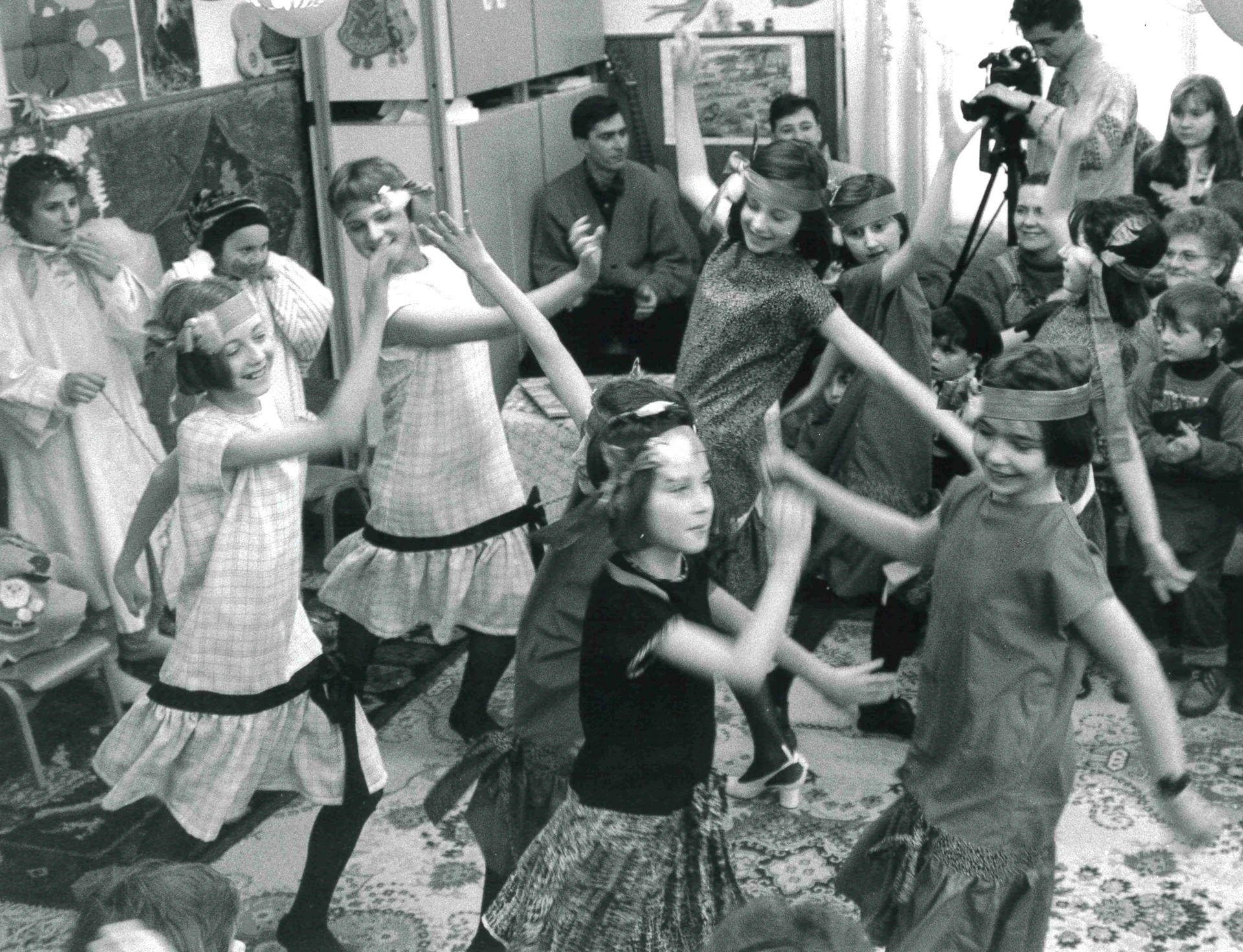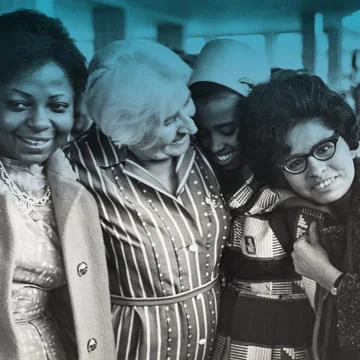Current exhibition

The Women’s Library at 100: celebrating a century of collections
Open 2 March 2026 until 30 September 2026
Introduction
The Women’s Library, the UK’s oldest and largest collection on the history of the women’s movement, is 100 years old.
This exhibition looks at the history of The Women’s Library and explores its rich and diverse collections from the viewpoint of researchers and their current engagement with it. Through the broad themes of international relations, women’s equality campaigning, political representation, child protection, and feminist publishing, the material highlights the important role women have played in shaping society.
Featuring over 60 items, many on display for the first time, this exhibition represents just a fraction of the extensive history preserved in The Women’s Library—stories of activism, resilience, and progress that continue to inspire today.
Lead image: Cockburn/12/2 ‘New Year 1996’ in Medica, Bosnia.
Exhibition curators
Patricia Owens, Professor of International Relations, University of Oxford.
Kelly Bosomworth, Midlands4Cities PhD candidate, University of Birmingham.
Dr Grace Heaton, Lecturer in History, University of Oxford.
Dr Lyndsey Jenkins, Associate Professor, University of Oxford.
Dr Claire Cunnington, Interpersonal violence researcher, University of Sheffield.
Caroline Derry, Professor of Feminism, Law and History, The Open University.
Nazmia Jamal, Paul Mellon Centre’s New Narratives Doctoral Scholar, University College London.
Gillian Murphy, Curator for Equality, Rights and Citizenship, LSE Library.
Further information
Any questions?
Contact us via email or find out other ways to get in touch.
